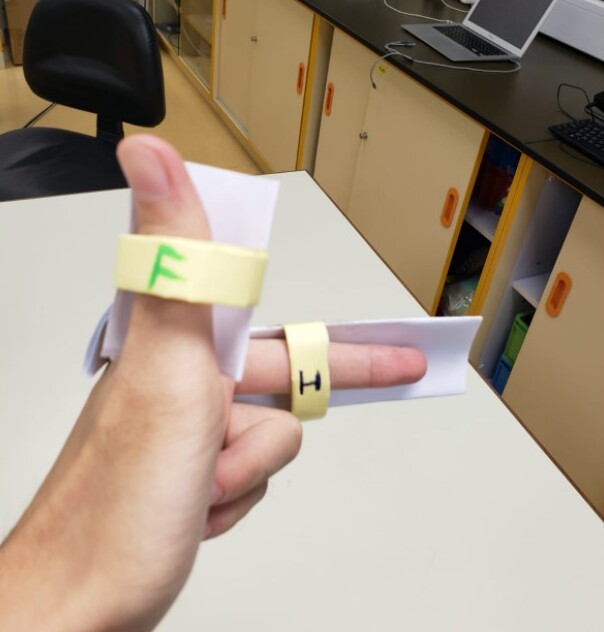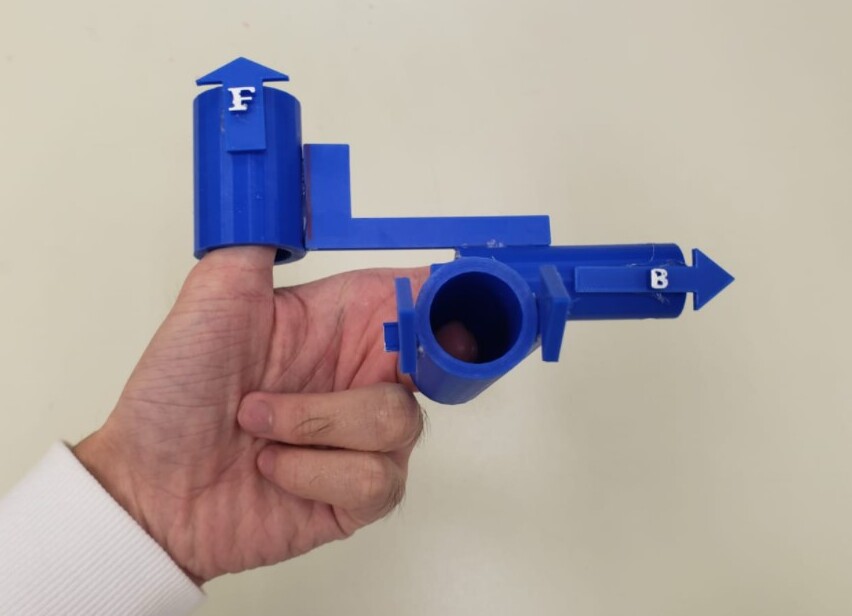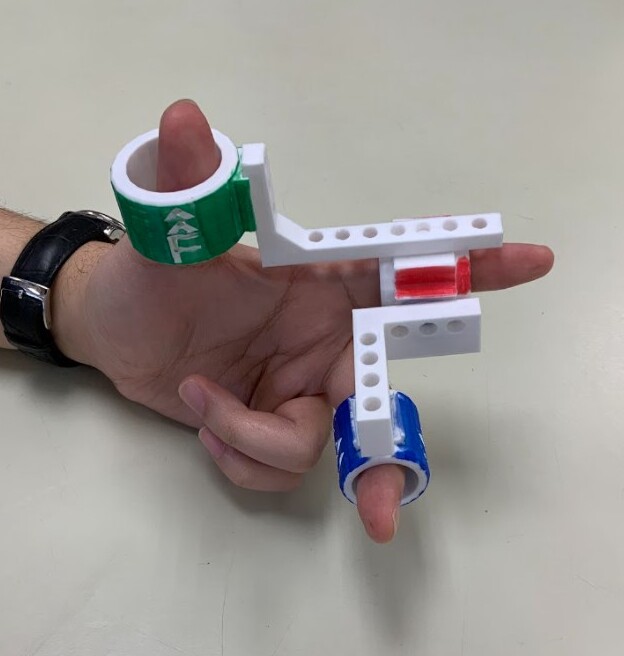Student Sharing - Students as Partner: Live Streaming Hands-on Professional Development Workshop for Physics/STEM teachers (supported by QEF and EDB)
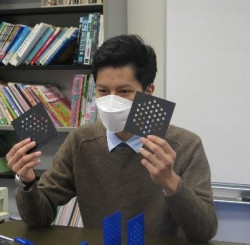
Chan Iat Cheong
Bachelor of Education and Bachelor of Science (Year 5)
The QEF Project Workshop took place on 16 and 17 February 2022. Since November 2021, I have been working with Ms Promail Leung and some students on the documentation of the teaching kits introduced in the workshop. I reviewed the student worksheets, lesson plans, and teacher’s manuals associated with the teaching packages to ensure that all these documents were ready to be distributed to the participants (primarily in-service teachers) during the workshop. I was responsible for presenting one of the packages during the workshop.
The greatest challenge in preparing the workshop is that many teaching packages are designed by students who graduated from HKU a few years ago. I faced some difficulties when reviewing the kits and preparing for the presentation at the workshop. Although the teacher’s manuals have briefly discussed the objectives of using the teaching packages, I would like to know more about the rationale of all the details in the design of the kits.
Before I started preparing my presentation for the workshop, I analyzed the teaching kits and thought about how I would use the package and how the packages could benefit students. For example, I described the strengths and limitations of the model based on my analysis. I also came up with several topics and exam-style questions that could be explained using the teaching kit. In other words, my presentation included the experience and ideas from both the authors of the package and me. I believe I have successfully described the teaching and learning package from a user’s perspective (i.e., physics teachers), which might be more effective than reporting the documents written by the authors. Everything I said during the workshop was genuinely my thoughts.
From my teaching practicums, I often felt uncomfortable using teaching and learning materials prepared by others, including teaching slides from the publishers and revision notes from the mentor teachers. However, creating everything from scratch is impractical, and hence using others’ work is almost inevitable. This workshop brought me some ways to overcome my discomfort. Moreover, I was amazed by the different 3D-printed teaching kits in the workshop. Traditionally, 3D shapes can only be shown as 2D images in textbooks and teaching slides (sometimes in 3D graphics software, but the screen is still 2D). Printing the physical 3D models allow students to visualize abstract concepts more quickly.
In the QEF project workshop, I am glad that I can introduce the innovations in teaching and learning to teachers on the frontline. I am very grateful for the opportunity to participate in the project.
Presenting the teaching package "Dynamic Magnetic Flux Model"
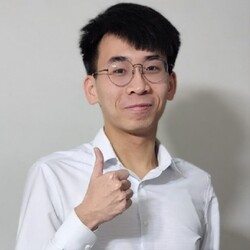
Leung Cheuk Wang
Bachelor of Education and Bachelor of Science (Year 5)
Joining the QEF workshop was a valuable experience that advanced my professional development. In the workshop, my partner and I created a 3D-printed teaching model, Fleming’s Finger Gloves, and presented it to in-service Physics teachers.
While we were creating the teaching aid, our problem-solving skills and design thinking were enhanced. We kept modifying the design by trial and error (see Table 1). For example, it was inconvenient to stick the components with a hot glue gun. We therefore adopted “Lego design” to assemble the teaching model in the final design. This mindset is applicable in teaching practice as well. Teachers face design challenges every single day, such as creating new assessments or preparing laboratory works. We require new perspectives and approaches in order to evaluate our work critically. Therefore, the experience has boosted my confidence and ability to design new teaching materials.
Besides, hosting a live streaming workshop was a great opportunity to practice my presentation skills. I needed to clearly explain the features of the teaching models and address teachers’ concerns. Yet, I found it challenging to maintain the audiences’ focus and receive their feedback in a virtual workshop. Through discussions with my teammates, I learned some practical skills that make our presentation more interactive. For instance, we invited participated teachers to rate our teaching aids from 1 to 5 in the chatroom. These teaching strategies are crucial especially in the time of pandemics. When remote teaching is inevitable, teachers have to learn about how to engage their students better. I believe the authentic experience in the workshop can help me support my students’ learning in the future.
To sum up, this experience has taught me that a good teacher is a lifelong learner. We never stop exploring new pedagogies in order to find the best way to scaffold students’ learning. This explained why many frontline teachers were willing to spend their valuable time joining this workshop. More importantly, the community of teachers is very supportive and encouraging. I am grateful to receive lots of new insights and perspectives from their advice. They have set an example for me, and this is the kind of teacher I want to be in the future.
| First draft:
|
| Second draft: |
| Final version:
|
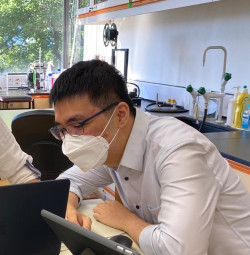
Lo Chun Yip, Michael
Bachelor of Education and Bachelor of Science (Year 5)
As author of one of the QEF Projects and speaker of the Workshop, I was delighted and felt welcomed to be part of the teacher community. I could not only share my learnings about STEM literacy and project-based learning, I also received pragmatic and insightful feedback from in-service teachers on how my teaching packages can be utilized and further improved and adapted to various schools. Such bidirectional interactions are really satisfying to me.
Throughout the development of my project, the most significant learning would definitely be the radical change of my robust teaching belief. Before that I was always doubtful on the learning efficacy of STEM lesson and the use of 3D printing, believing that it is just gimmick that claim to “revolutionize” education. But when my teammates and I kept trial and error to perfect our teaching design, I experienced from students’ perspective that we indeed achieved what we intended. During collaboration with my teammates, not only did we attain different milestones and reconcile hurdles and difficulties one by one, but we also learnt how to guide the social process of students’ learning from our conversation. Our role as teacher is no longer simply transmitting information, but to inspire, challenge and spark interests for what students want to learn. I, like the future students would undergo this project, feel accountable for our own learning and this allows me to rethink the role and impact of STEM on education as an evolution, instead of revolution. This further made me to be more open to various mode of teaching and learning.
Upon reflecting on the entire learning journey during this QEF project, I found myself becoming more willing to embrace uncertainties. During our progressive improvements of the project, the foreseeable latent uncertainties during classroom employment made me uncomfortable. But it turns out these uncertainties are necessary both for students to unleash their imagination and co-construct their knowledge together and for me as teacher to probe their alternate conceptions and scrutinize their lines of thinking. In particular, the trial of the package during my teaching practicum further reinforced my acknowledgement of uncertainties and cherish its importance as crucial teaching moments as highlight of my teaching.
In a nutshell, the QEF Project Workshop has prompted me to reflect on myself as a teaching professional at a higher level and the valuable opportunities to discuss with in-service teachers also enhanced my teacher-readiness and confidence.
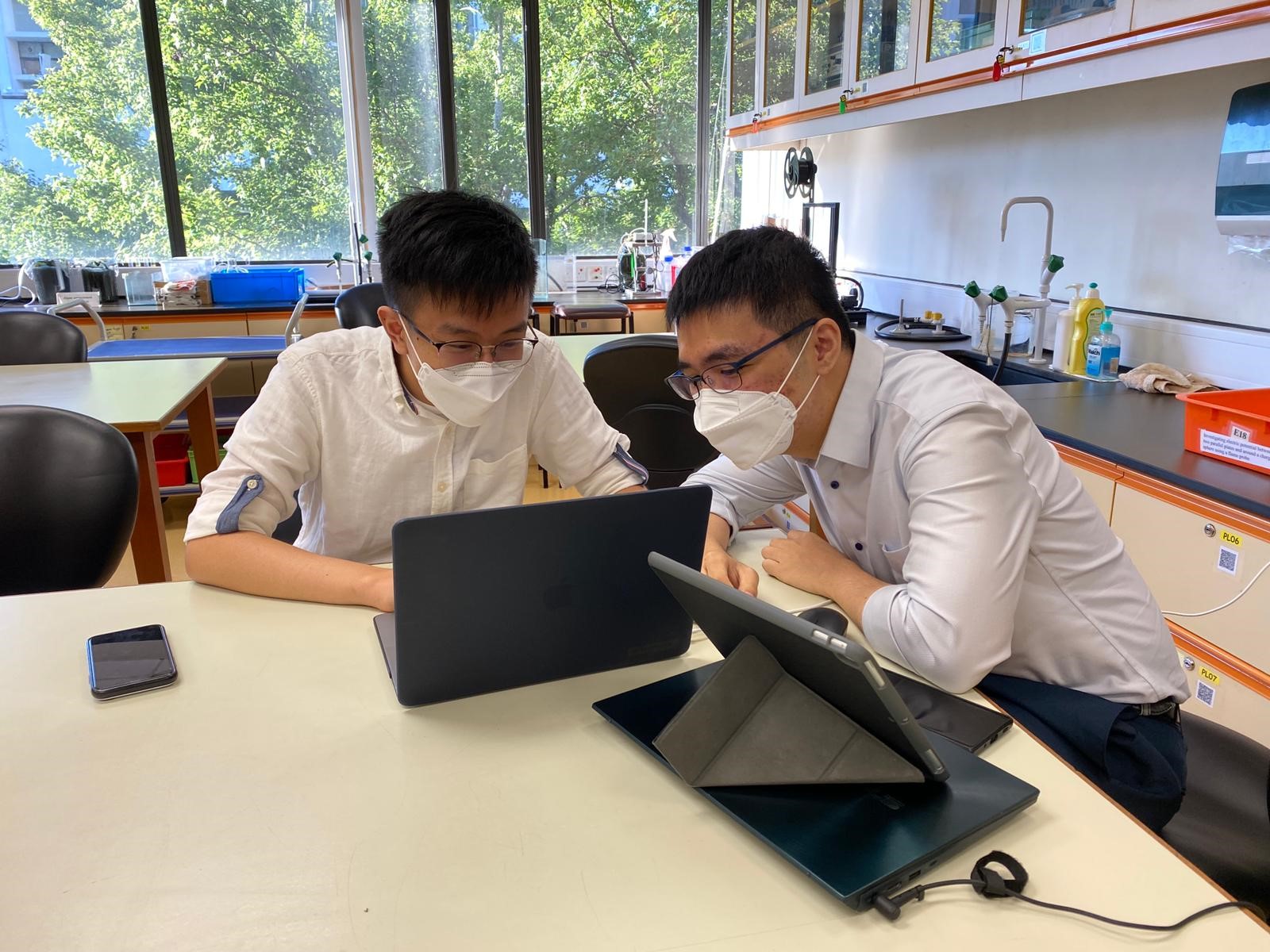
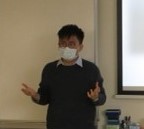
Tang Sik Ming
Bachelor of Education and Bachelor of Science (Year 5)
The QEF workshop was meaningful and inspiring to me, as it not only provided insight into students’ alternative conceptions in Physics, but also served as a platform for me to introduce my teaching tools to the teachers at different schools. As one of the creators of Finger Gloves and B-pad, my experience in the workshop was like the annual Apple Event, in which I needed to clearly present the functions of the teaching tools, engage the audiences, and address their concerns.
More importantly, I received lots of valuable and innovative ideas from teachers, which helped me know more about the user’s experience and further improve the teaching tools. For example, an experienced teacher suggested that the distance of the three-finger rings of the Finger Gloves should be shortened as it misled the students that the magnetic force was not acting on the current wire. This inspired me to revisit the designs carefully and prevent the teaching models from producing any misconceptions.
.jpg)
Although the workshop was just around 6 hours, it did induce significant impacts on my professional development. For example, it affirmed my belief of which a teaching tool made of daily-life materials could effectively address students’ misconceptions in teaching. This motivates me to develop more useful tools for catering students’ learning difficulties in other topics. Besides, the workshop also provided a chance for me to enhance my presentation strategies (e.g. body language and questioning types), 4C skills, and IT skills. These are all essential for in-service teachers nowadays, particularly during the pandemic, in which teachers need to conduct online lessons and overcome the distance barriers to teach and engage students remotely. For instance, I learnt about how to do the classroom settings and gave clear instructions and guidance to ensure that the audiences were looking at the right cameras. This experience also increased my confidence as well as the ability to conduct “live streaming” lab sections in lessons.
To summarize, the workshop was a memorable experience for me as it successfully broadened my mind on the methods of addressing students’ alternative conceptions and enhance my skills which are essential for a teacher. If possible, I would like to participate in next year’s workshop and provide my feedback on the teaching tools created by new students!!!

